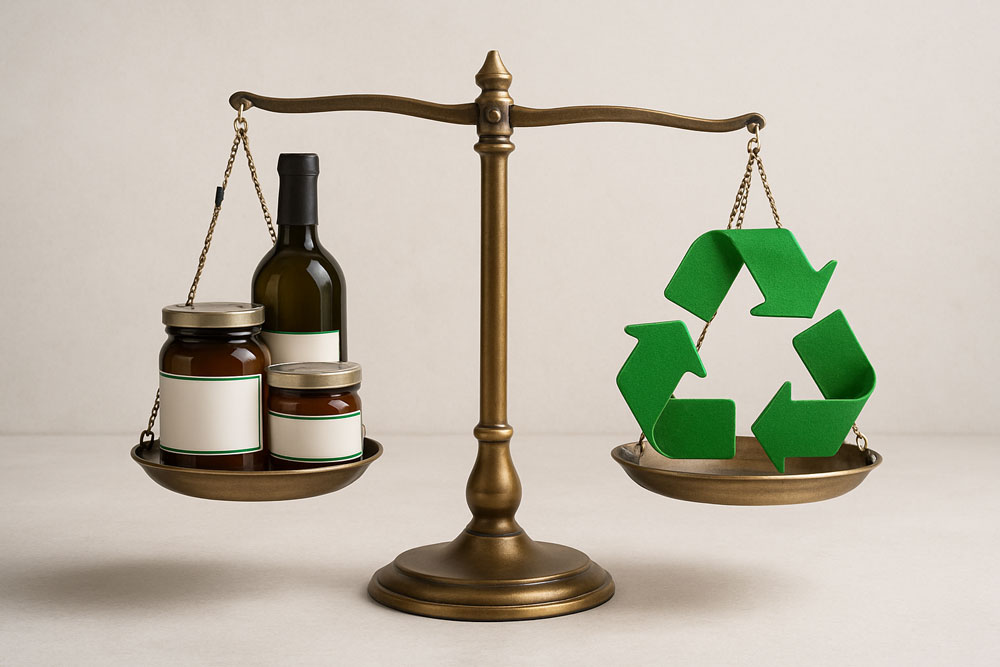Extended Producer Responsibility (EPR) is no longer a distant concept—it’s here. Several U.S. states have already enacted Extended Producer Responsibility (EPR) laws for packaging, and many others are actively considering similar legislation. For manufacturers, brands, and suppliers, this shift represents a fundamental change in how packaging is designed, reported, and paid for.
What is EPR?
Extended Producer Responsibility laws transfer the responsibility for packaging waste management from municipalities to the companies that produce and sell packaged goods (EPA definition of product stewardship). This means brands will be required to:
- Register with producer responsibility organizations (PROs)
- Track and report packaging by material type
- Pay eco-modulated fees based on the sustainability of their packaging choices
In short: companies will shoulder the costs of recycling, collection, and environmental impact.
Where It’s Already Happening
Seven states have passed EPR packaging laws—California, Colorado, Maine, Maryland, Minnesota, Oregon, and Washington—with program timelines rolling out between now and the early 2030s. More states are expected to follow. For anyone aiming to grow into larger markets or work with national manufacturers, this is not optional knowledge. It’s a structural change that will ripple through the supply chain.
The Cost of Plastic
Plastic has long been the low-cost option for packaging. But under EPR, its true costs will become unavoidable. Because plastic is harder to recycle, more resource-intensive to process, and has lower recovery rates than other materials, it will carry heavier fees. For companies relying on plastic packaging, the financial implications could be significant.
Glass in the Bigger Picture
Glass naturally aligns more closely with EPR goals. It is endlessly recyclable, widely accepted in recycling streams, and less likely to face steep penalties under future programs. Beyond compliance, glass conveys a premium, high-quality feel that strengthens brand perception and elevates the customer experience. Choosing materials that combine sustainability with distinction can help position businesses for both long-term stability and growth in this changing landscape.
Why Staying Informed Matters
For businesses looking to scale—or those hoping to work with major brands—understanding EPR is a game-changer. Compliance isn’t just about avoiding penalties; it’s about staying competitive in a market where sustainable packaging is no longer optional.
At Glassnow, we make it a priority to stay ahead of packaging trends and regulations—not only to support our customers, but to help educate the industry at large. If you have questions about EPR or want guidance on packaging options that support your business goals, reach out to our team at Sales@Glassnow.com or call 512.339.7808 to get started.

